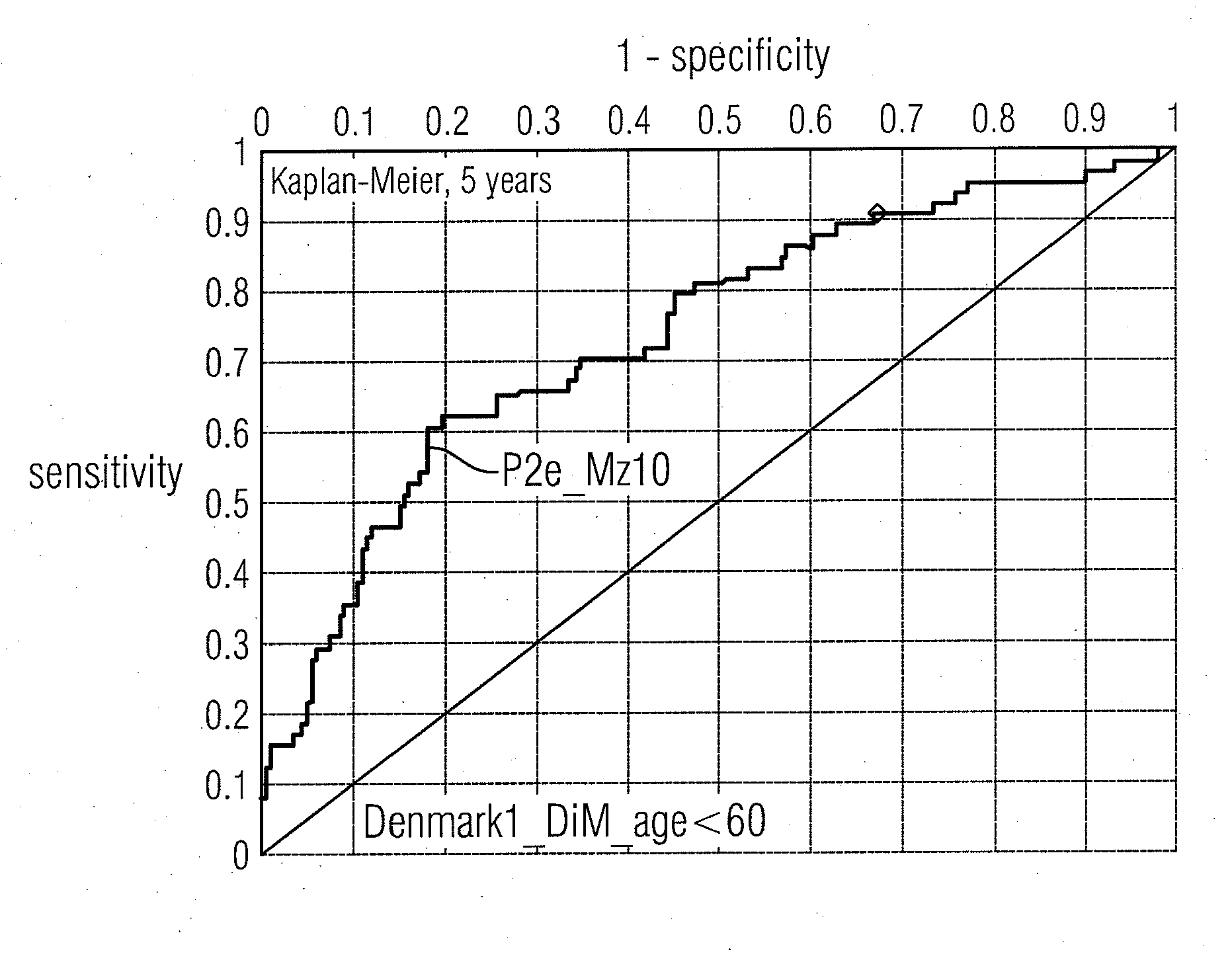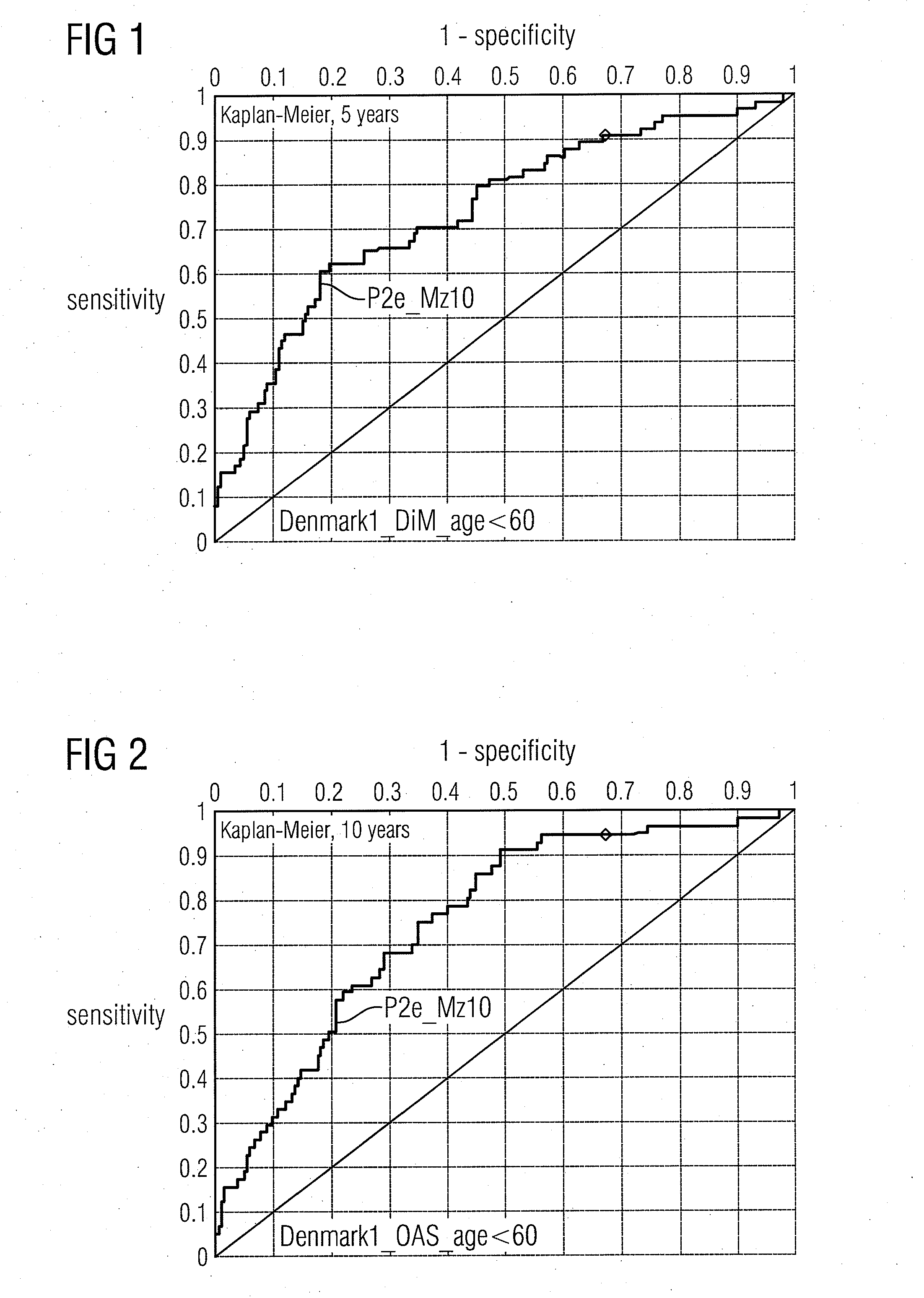Molecular markers for cancer prognosis
a cancer prognosis and molecular marker technology, applied in the field of breast cancer prediction, can solve the problems of true patient-tailored treatment, practice of significant over-treatment of patients, and false patient-tailored treatment, and achieve the effect of reducing the effect of measurement outliers
- Summary
- Abstract
- Description
- Claims
- Application Information
AI Technical Summary
Benefits of technology
Problems solved by technology
Method used
Image
Examples
Embodiment Construction
[0073]Gene expression can be determined by a variety of methods, such as quantitative PCR, Microarray-based technologies and others.
[0074]In a representative example, quantitative reverse transcriptase PCR was performed according to the following protocol:
Primer / Probe Mix:
[0075]50 μl 100 μM Stock Solution Forward Primer
[0076]50 μl 100 μM Stock Solution Reverse Primer
[0077]25 μl 100 μM Stock Solution Taq Man Probe bring to 1000 μl with water
[0078]10 μl Primer / Probe Mix (1:10) are lyophilized, 2.5 h RT
RT-PCR Assay Set-Up for 1 well:
[0079]3.1 μl Water
[0080]5.2 μl RT qPCR MasterMix (Invitrogen) with ROX dye
[0081]0.5 μl MgSO4 (to 5.5 mM final concentration)
[0082]1 μl Primer / Probe Mix dried
[0083]0.2 μl RT / Taq Mx (−RT: 0.08 μL Taq)
[0084]1 μl RNA (1:2)
Thermal Profile:
[0085]
RT step50° C.30Min* 8° C.ca. 20Min*95° C.2MinPCR cycles (repeated for 40 cycles)95° C.15Sec.60° C.30Sec.
[0086]Gene expression can be determined by known quantitative PCR methods and devices, such as TagMan, Lightcycler an...
PUM
| Property | Measurement | Unit |
|---|---|---|
| temperature | aaaaa | aaaaa |
| temperature | aaaaa | aaaaa |
| temperature | aaaaa | aaaaa |
Abstract
Description
Claims
Application Information
 Login to View More
Login to View More - R&D
- Intellectual Property
- Life Sciences
- Materials
- Tech Scout
- Unparalleled Data Quality
- Higher Quality Content
- 60% Fewer Hallucinations
Browse by: Latest US Patents, China's latest patents, Technical Efficacy Thesaurus, Application Domain, Technology Topic, Popular Technical Reports.
© 2025 PatSnap. All rights reserved.Legal|Privacy policy|Modern Slavery Act Transparency Statement|Sitemap|About US| Contact US: help@patsnap.com


